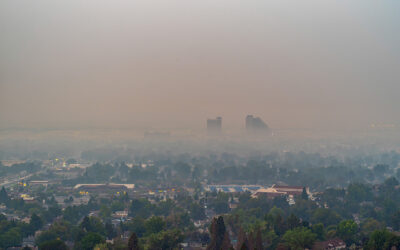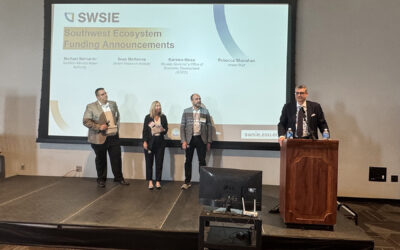DRI Welcomes Emily McDonald-Williams as STEM Education Program Manager
October 11, 2022
RENO, Nevada
DRI is excited to welcome Emily McDonald-Williams as its STEM Education Program Manager. She brings experience as a 4-H Coordinator at Oregon State University, where she focused on developing and expanding STEM education opportunities on a state, national, and international basis. Prior to her work at Oregon State University, she worked with Montana State Parks and the Bureau of Land Management with a focus on integrating natural resource content with hands-on education throughout the community.
“Emily’s experience in STEM education and her desire to expand high-quality programs and offerings makes her a terrific addition to DRI’s STEM Education group,” said DRI Executive Director of the Division of Earth and Ecosystem Sciences Philippe Vidon, Ph.D. “We are delighted for Emily to lead DRI’s K-12 STEM Education program.”
Along with her dedication to expanding high-quality STEM education opportunities, McDonald-Williams will focus on designing curriculum that is inclusive, accessible, and provided equitably.
“I’m thrilled to lead DRI’s impactful K-12 STEM education program,” said McDonald-Williams. “My experience in STEM education, community outreach, and environmental conservation and restoration work has prepared me for this new role.”
In addition to obtaining a Bachelor of Arts in environmental studies and biology from the University of California, Santa Cruz, McDonald-Williams also holds a Master of Science in education from Southern Oregon University, with a concentration in STEM curriculum and instruction.

Emily McDonald-Williams, STEM Education Program Manager at Desert Research Institute (DRI).
Credit: Jessi LeMay/DRI.
###
About DRI
The Desert Research Institute (DRI) is a recognized world leader in basic and applied environmental research. Committed to scientific excellence and integrity, DRI faculty, students who work alongside them, and staff have developed scientific knowledge and innovative technologies in research projects around the globe. Since 1959, DRI’s research has advanced scientific knowledge on topics ranging from humans’ impact on the environment to the environment’s impact on humans. DRI’s impactful science and inspiring solutions support Nevada’s diverse economy, provide science-based educational opportunities, and inform policymakers, business leaders, and community members. With campuses in Las Vegas and Reno, DRI serves as the non-profit research arm of the Nevada System of Higher Education. For more information, please visit www.dri.edu.


